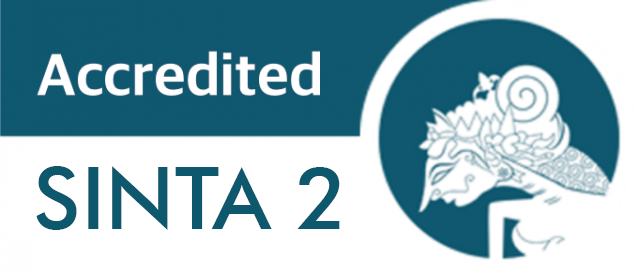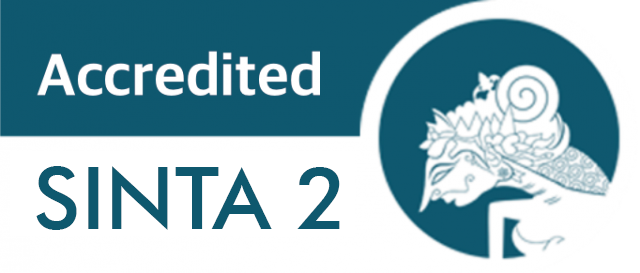Correlation between Groupwork Skills and Social Loafing Antecedents among Undergraduate Students
Introduction: Collaborative learning in academia is imperfect, as challenges such as uneven group participation may arise. Research on group work skills and social loafing in the academic context is also limited, particularly in higher education settings in the Philippines. The primary objective of this study was to examine the relationship between group work skills and antecedents of social loafing among Filipino undergraduate students in their collaborative academic pursuits. This study primarily investigated how the group work skills of individuals engaging in social loafing influence their behaviors and those of peers. Methods: Data were collected from 410 Filipino undergraduate students (n = 410) attending both public and private higher education institutions (HEIs) in the National Capital Region (NCR). Participants willingly completed an online survey using Google Forms. Results: Using Pearson’s correlation coefficient, the study identified a weak yet significant negative correlation between group work skills and social loafing antecedents (r(408) = -.26, p < .001). Conclusion: The paper offers valuable insights into the dynamics of social loafing and underscores the importance of teamwork in academic settings. It emphasizes the significance of adopting a comprehensive approach to enhance group performance, emphasizing personal accountability, fair task allocation, and cultivating a constructive and stimulating social environment.
Introduction
Bayanihan serves as a binding element within myriad Filipino communities. Bayanihan, or “team spirit,” embodies a multidimensional idea encompassing shared goals, camaraderie, common progress, and symbolic expressions of affection and allegiance through communal engagement, such as when a community member relocates their traditional nipa and bamboo dwelling[1]. Also, bayanihan is seen as “togetherness in common effort,” evident through resources, skills, and labor to achieve a shared goal[2]. Contemporarily, bayanihan can have different forms and occur in various settings, such as within and beyond the four corners of Filipino classrooms. Bayanihan can also be embodied through the collaborative learning of learners of all ages. Correspondingly, collaborative learning fosters a climate where learners actively cultivate a sense of community. In Philippine classrooms, collaborative learning enables students to actively contribute to knowledge construction, improve problem-solving abilities, share thoughts and perspectives, acquire valuable expertise, and learn things about communication, discipline, and problem- solving that can be applied in authentic workplace settings[3]. Undergraduate learners are immersed and sharpened in handling academic responsibilities with persistent patterns of shared labor. Shared effort, utilizing the group's skills, and the presence of problem resolution and reflection are characteristics of group work[4]. The essence of intellectual coherence can be embodied by maintaining a fair share of exerted efforts. Using the lens of educational psychology, it is believed that over the past decades, there has been a drastic increase in interest in collaborative learning as a result of the publication of research that demonstrates how it can be used to advance cognitive proficiency, scientific conceptual growth, mathematical problem-solving, and higher-order cognitive abilities[5]. Collaboration is also emphasized with the expanding list of twenty-first (21st) century skills. Many international studies on the phenomenon of social loafing have examined the impact of social loafing on the workplace[6]. Furthermore, only a few studies on social loafing in undergraduate collaborative learning have been published in higher education journals[7]. There is also limited research on social loafing in the academic context, and there is a negligible quantity of research in higher education settings in the Philippines. Therefore, further studies are required in this area.
It is critical to ascertain how students conceptualize elements (in this case, group work skills) that motivate social loafing behavior. There is a lack of cultural background on the social loafing behavior of students from Eastern cultures (like in the Philippines)[8]. In light of these research gaps, the principal purpose of this study was to examine the relationship between group work skills and the social loafing antecedents of Filipino undergraduate students in accomplishing their collaborative academic pursuits, which require sufficient group effort. This correlational study aims to answer the following research questions and proposes the following hypotheses:
- Is there a relationship between Filipino undergraduate students' overall groupwork skills and social loafing antecedents?
- Is there a relationship between the task groupwork skills of Filipino undergraduate students and the sub- variables of social loafing antecedents?
- Team Members Do More to Pickup the Slack
- Poor Overall Team Performance
- Is there a relationship between the interpersonal groupwork skills of Filipino undergraduate students and the sub-variables of social loafing antecedents?
- Loafer’s Apathy
- Loafer’s Distractive and Disruptive Behavior
- Loafer’s Disconnectedness
- Loafer’s Poor Work QualityThree hypotheses were formulated by the researchers considering the design of the study. The hypotheses are as follows
H1a: A negative relationship exists between Filipino undergraduate students' groupwork skills and social loafing antecedents.
H2a: A negative relationship exists between task groupwork skills and the two specified sub- variables of social loafing antecedents of Filipino undergraduate students.
H3a: A negative relationship exists between task interpersonal skills and the four specified sub- variables of social loafing antecedents of Filipino undergraduate students.
The study offers valuable insights for future researchers to contribute to the broader understanding of human behavior and group dynamics. Research on the relationship between groupwork abilities and social loafing is essential because it can advance theoretical paradigms, encourage methodological innovation, encourage interdisciplinary collaboration, and direct the creation of effective interventions and regulations. Relatively, it helps the community realize the importance of studying social loafing at the tertiary level in preparation for the professional world. Through this research, educators in academia may increase their understanding of the multiple dimensions of the social loafing phenomenon. This encourages them to formulate collaborative activities and perform helpful strategies to minimize or eradicate social loafing in their respective classes. For 21st-century adult learners, this research study encourages and empowers them to contribute fairly during class group activities. This may also lead to their greater appreciation for fair collaboration and contribution. Ultimately, they may also realize the value of groupwork skills, which may improve group performance.
Conceptual Framework
Figure 1.provides a visual framework that demonstrates the hypothesized relationship between group work skills and social loafing antecedents for tertiary (undergraduate) collaborative learning activities. Furthermore, the dotted arrows are the sub-variables to be examined in terms of their relationship. The researchers examined the relationship between task group work skills and the two sub-variables of social loafing antecedents. Figure 1. Conceptual Framework of the Relationship of Groupwork Skills and Social Loafing Antecedents
Methods
Research Design
This research study used a quantitative approach to correlate and examine significant sub-variables of the co-variables of the study. The quantitative approach was selected to obtain a large amount of data for generalizability as support for
F. A. del Castillo and M. S. Perdido, “‘Bayanihan:’ protecting communities from the cost-of-living crises,” Journal of Public Health, Nov. 2022, doi: https://doi.org/10.1093/pubmed/fdac134.
C. Walker, K. Johnson, and L. Cunningham, Community psychology and the socio-economics of mental distress: international perspectives. Basingstoke, Hampshire: Palgrave Macmillan, 2017
N. P. Cagatan and E. A. Quirap, “Collaborative Learning and Learners’ Academic Performance,” International journal of multidisciplinary research and analysis, vol. 07, no. 03, Apr. 2024, doi: https://doi.org/10.47191/ijmra/v7-i03-57.
L.Tonheim, M. Molin, A. Brevik, M. Gundersen, and L. Garnweidner-Holme, “Facilitators and barriers to online group work in higher education within health sciences – a scoping review,” Medical education online, vol. 29, no. 1, Apr. 2024, doi: https://doi.org/10.1080/10872981.2024.2341508.
C. N. Loes, “The Effect of Collaborative Learning on Academic Motivation,” Teaching and Learning Inquiry, vol. 10, no. 1, Jan. 2022, doi: https://doi.org/10.20343/teachlearninqu.10.4.
I. A. Elshaer, M. Algezawy, M. M. S. Ghaleb, S. A. Mohamed, and A. M. S. Azazz, “The Impact of Social Loafing on Turnover Intention for Tourism Employees Post COVID-19: The Mediating Role of Mental Health,” International Journal of Environmental Research and Public Health, vol. 20, no. 9, p. 5702, Jan. 2023, doi: https://doi.org/10.3390/ijerph20095702.
Z. Luo, E. Marnburg, T. Øgaard, and F. Okumus, “Exploring antecedents of social loafing in students’ group work: A mixed-methods approach,” Journal of Hospitality, Leisure, Sport & Tourism Education, vol. 28, p. 100314, Jun. 2021, doi: https://doi.org/10.1016/j.jhlste.2021.100314.
V. Bardhoku, “Social Loafing in Multicultural Teams: A qualitative perspective on social loafing tendencies in multicultural teams of international business students / Author Verona Bardhoku,” Jan. 2020.
V. Renjith, R. Yesodharan, J. Noronha, E. Ladd, and A. George, “Qualitative Methods in Health Care Research,” International Journal of Preventive Medicine, vol. 12, no. 1, p. 20, Feb. 2021, doi: https://doi.org/10.4103/ijpvm.IJPVM_321_19.
Q. Huang, X. Wang, Y. Ge, and D. Cai, “Relationship between self-efficacy, social rhythm, and mental health among college students: a 3-year longitudinal study,” Current Psychology, vol. 42, Aug. 2021, doi: https://doi.org/10.1007/s12144-021-02160-1.
F. Esser and R. Vliegenthart, “Comparative Research Methods,” The International Encyclopedia of Communication Research Methods, pp. 1–22, Aug. 2017, doi: https://doi.org/10.1002/9781118901731.iecrm0035.
C. Cornesse, A. Blom, D. Dutwin, J. Krosnick, E. Leeuw, S. Legleye, J. Pasek, D. Pennay, B. Phillips, J. Sakshaug, B. Struminskaya, and A. Wenz, “A Review of Conceptual Approaches and Empirical Evidence on Probability and Nonprobability Sample Survey Research,” Journal of Survey Statistics and Methodology, vol. 8, no. 1, pp. 4–36, Jan. 2020, doi: https://doi.org/10.1093/jssam/smz041.
S. J. Cooley, F. F. Eves, J. Cumming, and V. E. Burns, “‘Hitting the ground running’: preparing groups for outdoor learning using a theoretically-based video,” Journal of Adventure Education and Outdoor Learning, vol. 20, no. 1, pp. 30–48, Dec. 2018, doi: https://doi.org/10.1080/14729679.2018.1558081.
D. P. Corts and H. E. Tatum, Ethics in Psychological Research. SAGE Publications, 2018.
J. E. Sallis, G. Gripsrud, U. H. Olsson, and R. Silkoset, Research Methods and Data Analysis for Business Decisions. Cham: Springer International Publishing, 2021. doi: https://doi.org/10.1007/978-3-030-84421-9.
K. S. Taber, “The use of cronbach’s alpha when developing and reporting research instruments in science education,” Research in Science Education, vol. 48, no. 6, pp. 1273–1296, June. 2018, doi: https://doi.org/10.1007/s11165-016-9602-2.
M. A. Qureshi, A. Khaskheli, J. A. Qureshi, S. A. Raza, and S. Q. Yousufi, “Factors Affecting Students’ Learning Performance through Collaborative Learning and Engagement,” Interactive Learning Environments, vol. 31, no. 4, pp. 2371–2391, Feb. 2023, doi: https://doi.org/10.1080/10494820.2021.1884886.
S. W. J. Kozlowski and D. R. Ilgen, “Enhancing the Effectiveness of Work Groups and Teams,” Psychological Science in the Public Interest, vol. 7, no. 3, pp. 77–124, 2019, doi: https://doi.org/10.1111/j.1529-1006.2006.00030.x.
J. Milinga, E. Kibonde, V. Mallya, and M. Mwakifuna, “Addressing the Social Loafing Problem in Assessment Practices from the Perspectives of Tanzania’s Pre-service Teachers,” Australian Journal of Teacher Education, vol. 47, no. 6, pp. 1–18, Jun. 2022, doi: https://doi.org/10.14221/ajte.2022v47n6.1.
C. H. Meydan, Ç. A. Kahraman, and U. Basar, “Social Loafing and Impression Management in an Organizational Context,” International Review of Management and Marketing, vol. 4, no. 3, pp. 201–206, 2014, Accessed: Oct. 08, 2022. [Online]. Available: https://ideas.repec.org/a/eco/journ3/2014-03-03.html
J. W. Creswell and J. D. Creswell, Research design: Qualitative, quantitative & mixed methods approaches, 5th ed. Los Angeles: Sage, 2018.
Copyright (c) 2025 Franz Jerby Delos Santos, Marie Chiela Malcampo

This work is licensed under a Creative Commons Attribution-ShareAlike 4.0 International License.
1. Copyright of this journal is possession of the Author, by the knowledge of the Editorial Board and Journal Manager, while the moral right of the publication belongs to the author.
2. The journal allows the author(s) to retain publishing rights without restrictions.
3. The articles are published under a Creative Commons Attribution Share-Alike (CC BY-SA) license. Many research funding bodies prefer the CC BY-SA license because it allows for maximum dissemination and re-use of open access materials. Users are free to share (copy, distribute, and transmit) and remix (adapt) the contribution under this license, including for commercial purposes, as long as they attribute the contribution in the manner specified by the author or licensor.




























